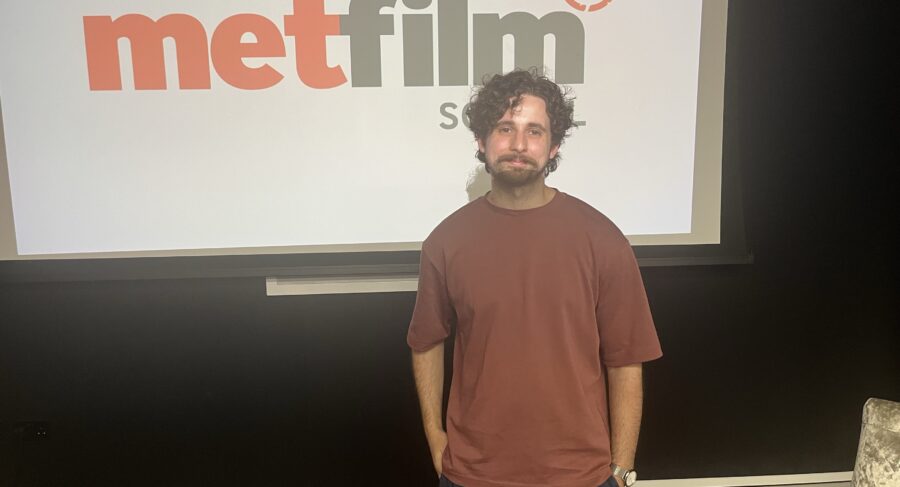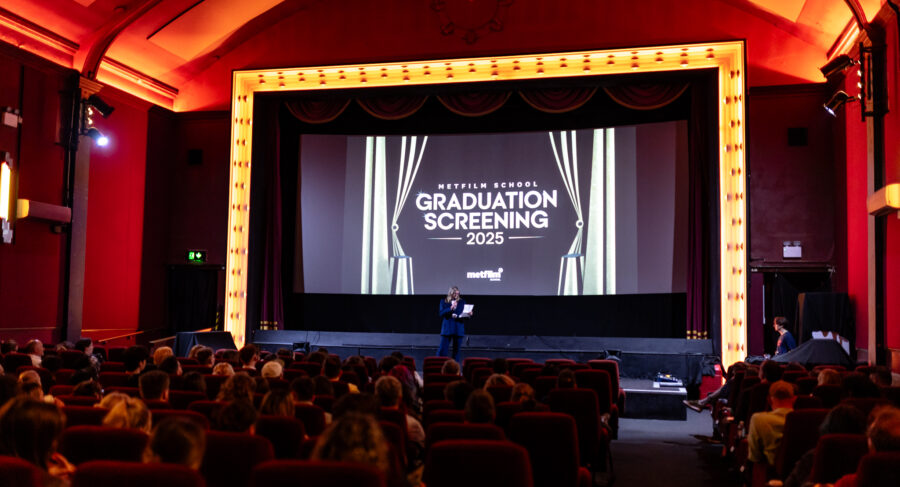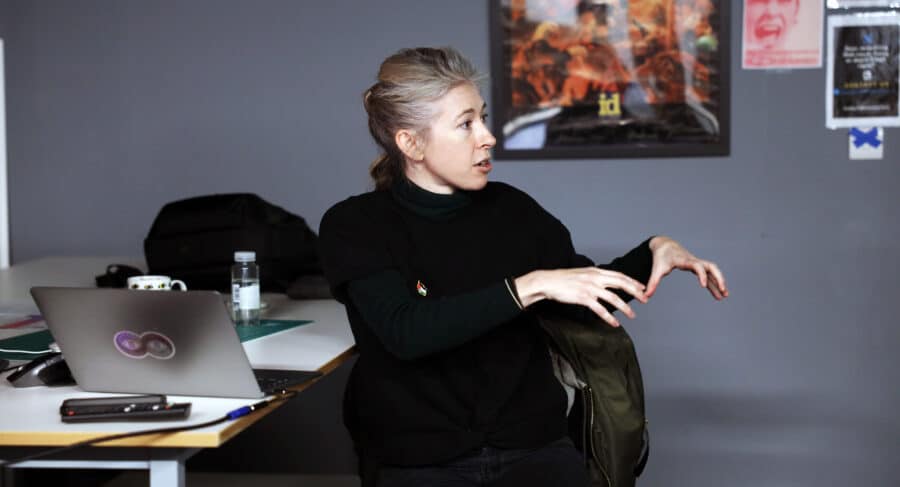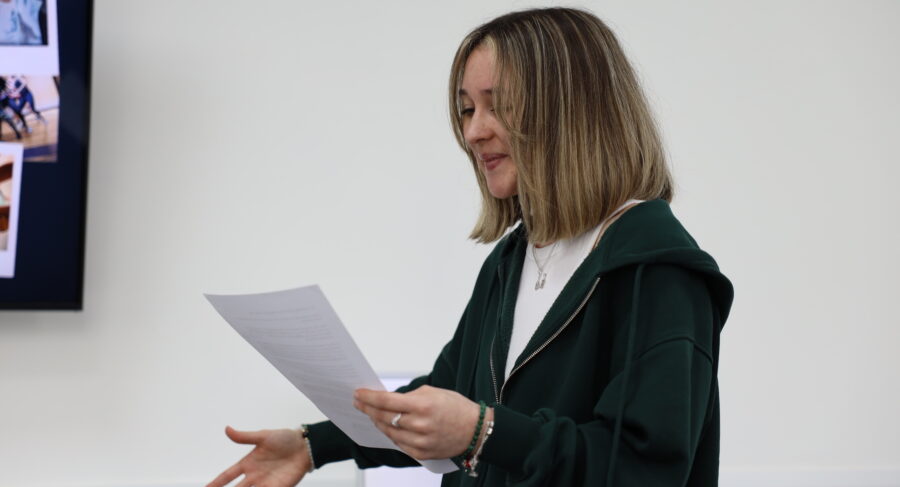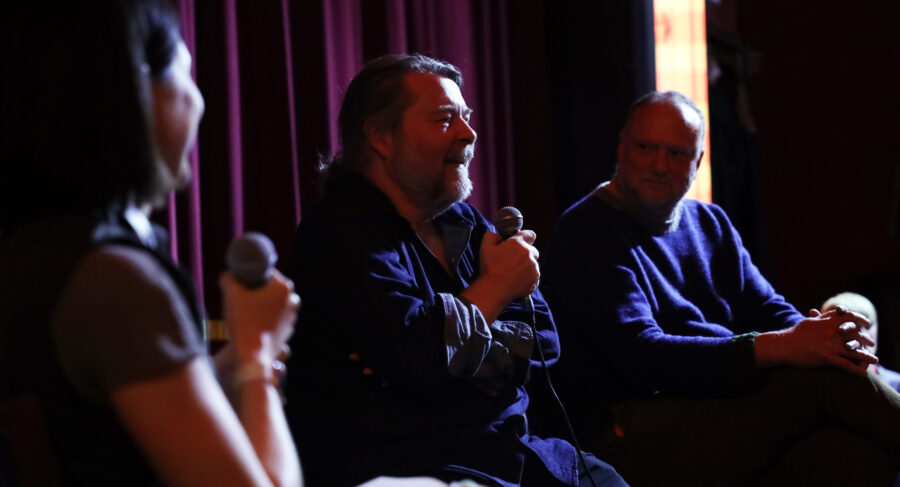Why Film School | 2024 BA Degrees
By Elise Czyzowska
03 January 2024
Welcome to our first blog of 2024! The MetFilm School team are already getting back into the swing of things – including launching our handy UCAS 2024 webpage, just in time for the Application Deadline on Wednesday 31 January, 6pm GMT.
For anyone considering film school ahead of this deadline, we’re here to help you decide if this is the place for you.
Keep reading for the three top benefits of attending a film school over a traditional university…
A Practical Education
Film schools – like with music or drama schools – offer their students specialised education. While traditional universities have endless subjects to choose from, these institutions offer a more limited choice, allowing you to dig deep into your future career ambitions and find a degree which meets every single goal.
These institutions will typically also focus on the ‘practical’ side of your learning – at film school, this ranges from making films, to writing scripts, to learning to pitch ideas, for example. Traditional universities tend to (though not always!) deliver ‘film studies’ or ‘film theory’ degrees, where the chance to get on set and make, fail, make, fail, MAKE is slightly more limited.
Of course, it’s important to learn about the theories and history of our art – and our BA Degrees acknowledge this, with modules on Film Theory and Language, for example, on our two BA Practical Filmmaking pathways. However, if you’re looking for the chance to produce visual artefacts which support your learning, film school is a great place to do this.
Take a look at what our students have produced in our 2023 London BA Showreel!
And of course – this practicality extends beyond the classroom (or the set!). At MetFilm School, we concentrate on your employability from the start by providing access to our dedicated careers advice department, MetFilm Futures.
The team works to support you through one-on-one career surgeries, festival support, a tailored jobs board, and by inviting creatives across the industry to join us in-person and virtually for Masterclass Sessions.
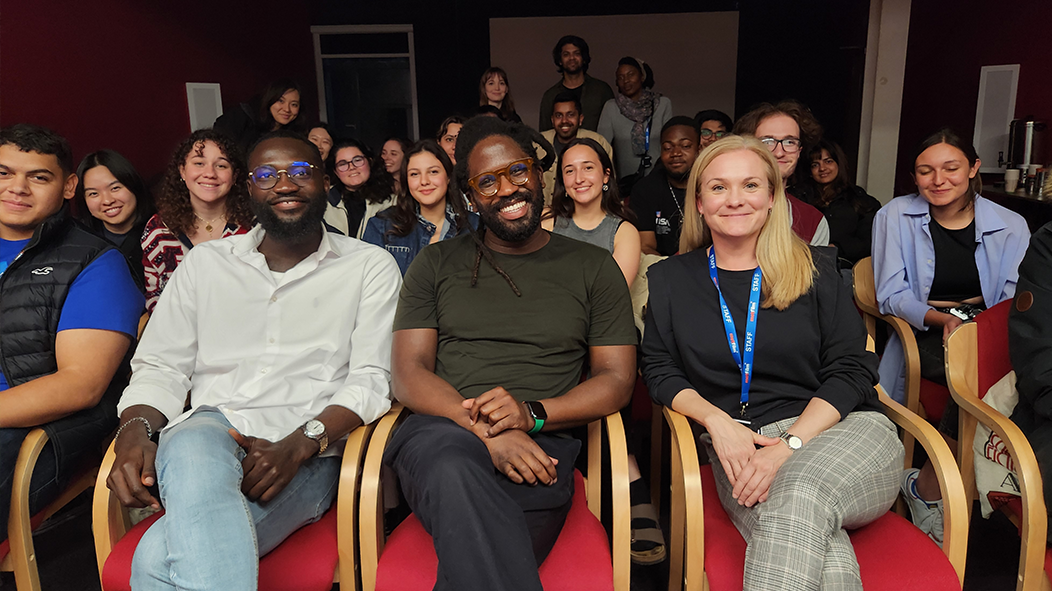
A Bridge to Industry
The focused approach of a film school also gives institutions more scope to build connections across the industry. We are very proud to hold numerous partnerships, starting right on campus with our studio locations: Ealing Studios, Garden Studios, and Prime Studios.
Each partnership that we set up is done so with our students and graduates in mind. This includes providing you with access to royalty free sounds and music through SoundSnap – a leading platform used by the likes of Netflix, BBC, and HBO, and encouraging a continued passion for your craft through streaming subscriptions. In London and Leeds, we offer free access to the BFI Player, and in Berlin, a similar partnership has been set up with MUBI.

This bridge to industry also finds its way into your curriculum in a number of ways. We ensure that students are trained on the most up-to-date Film & TV equipment through our partnership with ProVision, one of the leading suppliers of Camera, Lighting, Grip, and Sound equipment to some of the UK’s longest and most prestigious television shows.
Students are then taught a foundation of knowledge and skills which reflects the modern industry that they will be joining – which is facilitated by the fact that our teaching staff work across the industry!
At the December 2023 Berlin Doc Fest for example, we were particularly proud to see a film by Documentary tutor Maja Classen screened alongside the work of her own student, Dasha Altukhova!
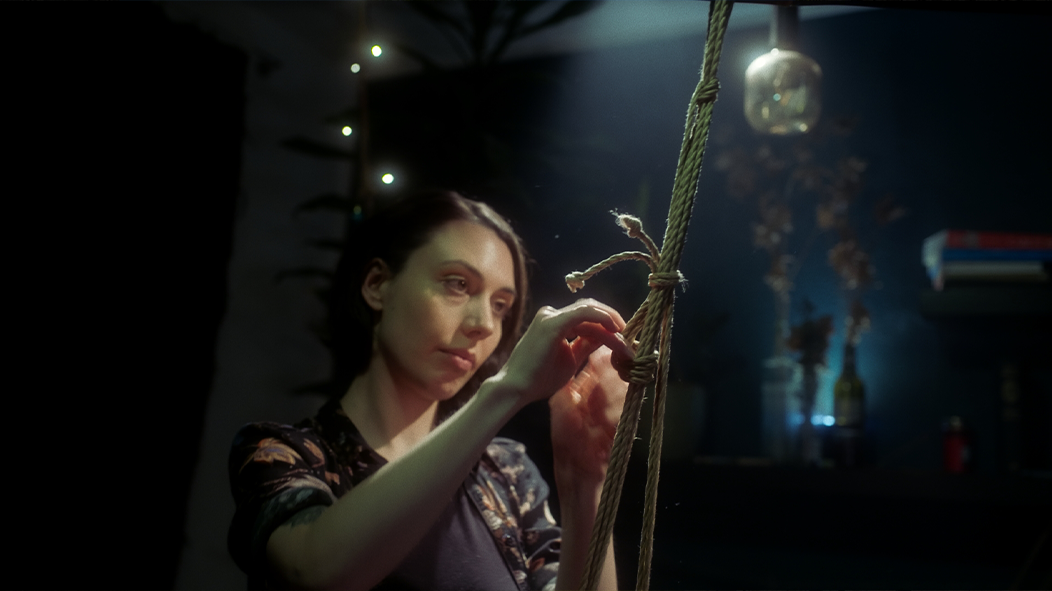
On courses such as BA Content, Media & Film Production and BA Film & Screen Business, this connection goes one step further. Each semester, a different Industry Partner will set a brief, and your learning will then revolve around fulfilling that brief – once again, a practical approach to your education. At the end of each semester, you will work with your fellow students to produce content for this partner.
Explore BA Film & Screen Business in this short course video.
A Creative Community
At a traditional university, you might find upwards of 20 professions – a lecture on history right next door to a physics lab, and so on. This is a great chance to meet new people with different perspectives and passions than your own. At film school, on the other hand, everybody that you meet or study with has a shared passion: the creative industries.
Many of our graduates continue to collaborate with one another on both personal and professional projects. Some set up production companies together, and others have ended up on some of the biggest movies of the year together, totally by coincidence!
It goes without saying then, that if you are looking to build your creative community, find your network, and collaborate to your hearts content: film school is the place for you.

For aspiring actors, this community goes even further. By studying at a film school, you are not only being trained in the craft of acting, but you are also immediately learning how to act on a film set, or for a webseries, and so on…
The obvious – but key – difference between a film school and a drama or theatre school, is that you are surrounded not only by other actors, but by the entire industry.
Our BA Screen Acting and BA Acting for Screen students have a constant stream of projects to audition for and collaborate on – and they also get the valuable opportunity to learn how the world of filmmaking informs their performance. For example, modules covering the foundations of filmmaking on our BA Screen Acting degree mean that our actors know their way around a set, and can understand why certain productions might require different styles or approaches to a role.
- Explore the full range of BA Degrees at MetFilm School.
- Speak to our Admissions Team ahead of the Results Day on Thursday 15 August!
*Subject to Validation

